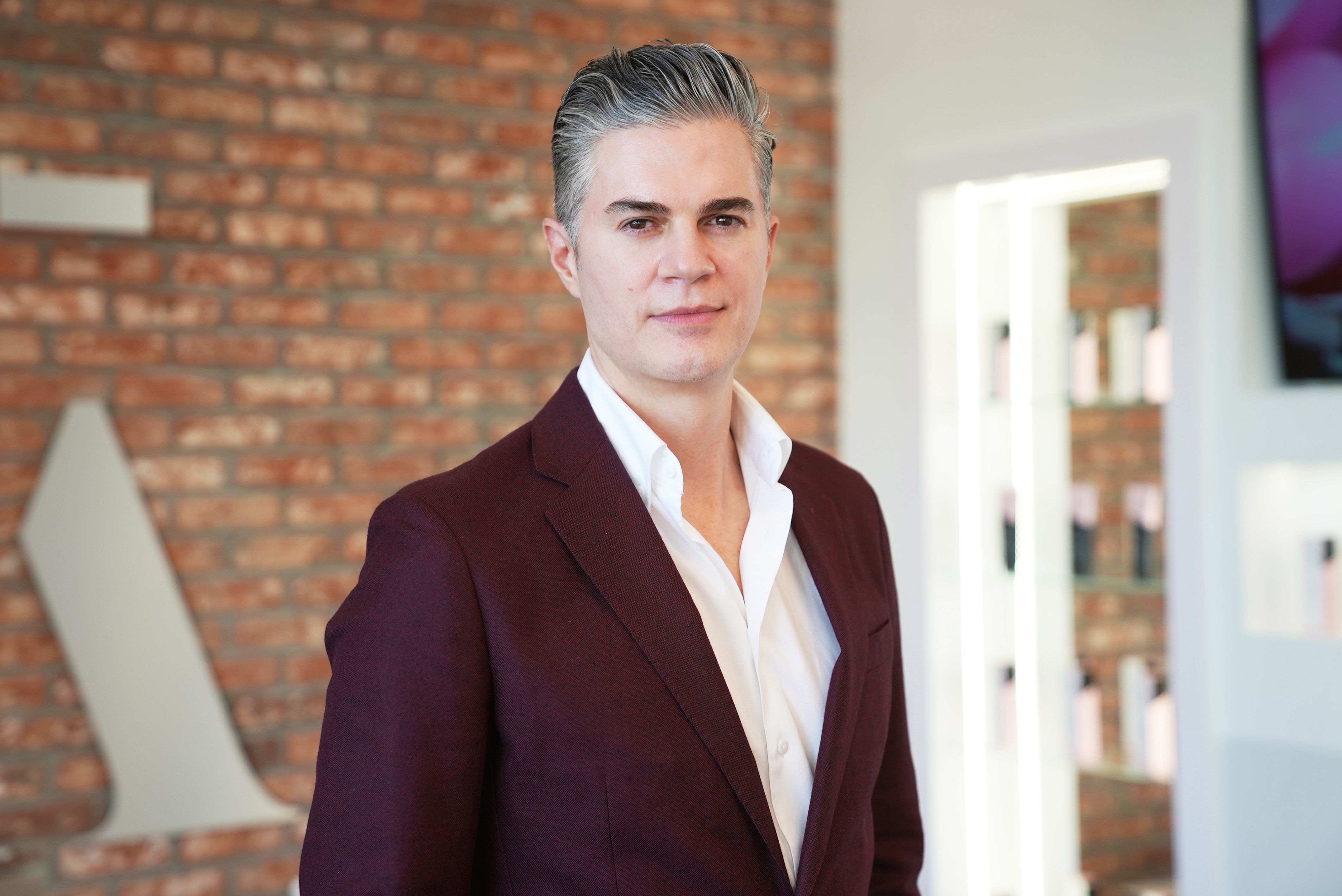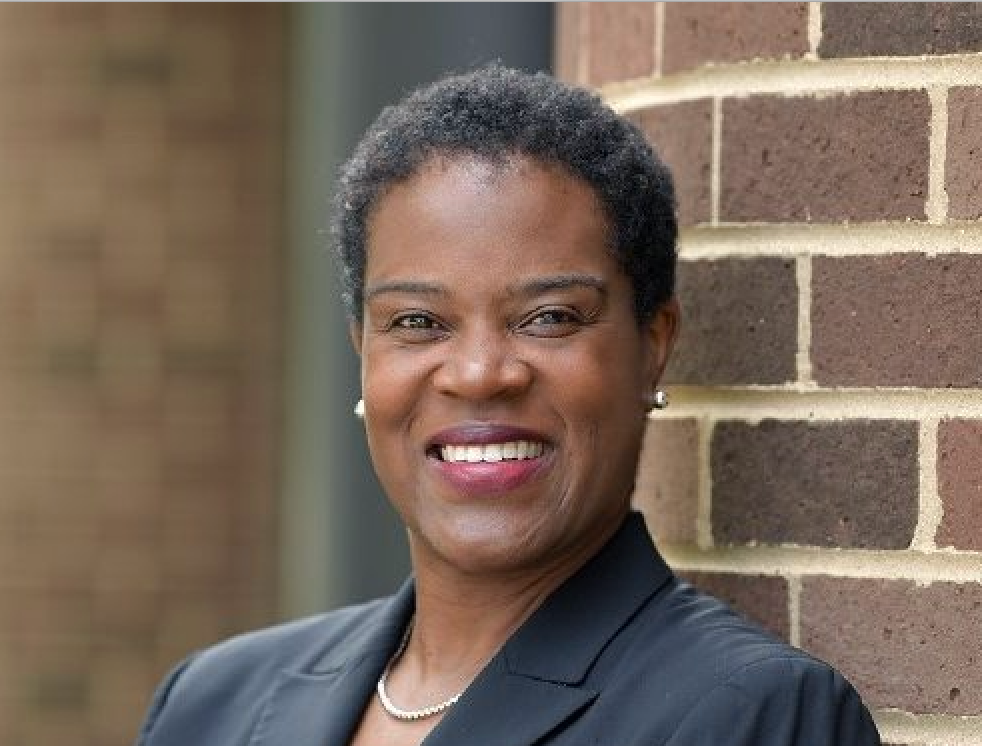- Case-Based Roundtable
- General Dermatology
- Eczema
- Chronic Hand Eczema
- Alopecia
- Aesthetics
- Vitiligo
- COVID-19
- Actinic Keratosis
- Precision Medicine and Biologics
- Rare Disease
- Wound Care
- Rosacea
- Psoriasis
- Psoriatic Arthritis
- Atopic Dermatitis
- Melasma
- NP and PA
- Skin Cancer
- Hidradenitis Suppurativa
- Drug Watch
- Pigmentary Disorders
- Acne
- Pediatric Dermatology
- Practice Management
- Prurigo Nodularis
- Buy-and-Bill
Article
Meet the Aesthetic Expert with Dr Will Kirby: Edrice Simmons
Author(s):
In this month’s “Meet the Aesthetic Expert” column, Will Kirby, DO, FAOCD, talks with Edrice Simmons, senior vice president for US brands for Allergan Aesthetics, an AbbVie company, about entering the aesthetics industry, innovation, and implementing approachable and representative marketing campaigns.

Welcome to “Meet the Aesthetic Expert,” where, each month, dermatologist Will Kirby, DO, FAOCD, of LaserAway, will connect with select industry leaders to get their expert opinion on the aesthetic specialty. With an emphasis on straightforward, candid questions, Kirby will focus on the best in aesthetics and get the experts’ frank thoughts on where the field is headed.

Edrice Simmons is the senior vice president for US brands for Allergan Aesthetics, an AbbVie company.
Simmons is responsible for overseeing the Allergan Aesthetics US professional brand marketing for facial aesthetics (BOTOX Cosmetic and Juvéderm Filler Franchise), plastic surgery and regenerative medicine, body contouring, and SkinMedica products. She is a proven commercial leader and talent magnet. Previously, Simmons was the co-leader of the Immunology Therapeutic Asset Strategy Committee at AbbVie and oversaw the commercial development of immunology pipeline assets, leading the new product development immunology team to drive the early commercial strategy. Simmons joined AbbVie in 2014 as senior marketing director, gastroenterology and advanced to vice president, US gastroenterology with focus on eliminating the burden for patients living with inflammatory bowel disease. Prior to joining AbbVie, Simmons worked at Eli Lilly & Company where she served in various roles in both sales and marketing.
Kirby: Thanks so much for agreeing to doing an interview with me, Edrice. Let’s jump right into it! What led you to this aesthetic career path?
Simmons: I have worked in many therapeutic areas and education is a part of everything that I do. First there is learning for myself, then helping to educate our customers and consumers, and mentoring within the medical pharma community. I’ve been operating this way my entire career, so when I had the opportunity to learn more about the Allergan Aesthetics purpose of empowering confidence in others—it was immediately appealing to me. I understand the strength and value of confidence.
K: What's the best piece of career advice you have received?
S: The best career advice I received comes from my parents. We grew up on a farm and they instilled in me the importance of treating everyone fairly and with respect. It’s not just something I was told; it is something I was shown every single day. I don’t forget it—ever.
K: What resources are the most effective in making your life in aesthetics easier?
S: Networking is one of the most powerful tools money can’t buy. When we come together to share interests and ideas, celebrate accomplishments, and learn new approaches to tackle challenges—we create a circle of support that is invaluable.
As someone who is new to the aesthetics industry, I can’t say enough about how I’ve been embraced and included as part of this aesthetic network. Researchers, scientists, health care providers, colleagues, and customers—they’ve all willingly connected with me and are helping me to learn and grow.
I believe that nurturing those professional relationships is how we become more creative and efficient when it comes to impacting positive change.
K: How can we encourage more authenticity in aesthetics?
S: As leaders in the industry, we need to set the example. If we want people to be open about their aesthetic treatments, we need to show everyday people, not just celebrities and models, engaging with treatments. That’s what we aimed to do with our new Botox Cosmetic campaign which features over 18 real people and their treatment journey’s.
When I saw these stories, I saw myself—and many other people I know—reflected in them. That’s when I knew we were doing something right.
K: Telehealth exploded during the pandemic. Is it here to stay? What role will it have in aesthetics moving forward?
S: Coming from the more traditional pharma side, I think it’s inevitable that some of the changes that happened during COVID-19 will last. How we communicate is certainly one of them and telehealth, in terms of medical assessment, makes sense for many industries.
When it comes to aesthetics, I think the power and ease of video to connect with a health care provider cannot be overlooked.
Of course, we all know what the zoom boom is doing for our industry…
K: What is the biggest myth in the aesthetic industry?
S: If you go back and look at materials from the industry from 5 years ago—print ads, tv ads, healthcare provider educational materials—you would think that most people who get aesthetic treatments are middle-aged Caucasian women. And maybe that was the situation then, but it’s not anymore.
The consumers of aesthetic treatments come in all sizes, shapes, and colors and they are spending—big time. Black women and the LatinX population spend about $1.5 trillion dollars each per year on health care and beauty products, according to Neilson and WWD, and Asian-Americans are around $1 trillion, according to Neilson. This is huge buying power. Male consumers across all ethnicities are on the rise too. The New York Times just did a feature on this.
We know that aesthetics can be for all types of adults. We need to reflect that in our business and our materials.
K: It is often said that the aesthetic industry is “ripe for disruption”. Do you agree?
S: Like any market that is still developing, we have room to grow. I think innovation is the new disruption. Without a doubt we will continue to see new product innovation in categories where there is unmet need. And the products we have now will continue to be improved upon. I think there is also a lot more innovation coming in the ways we interact and communicate within the industry. Social media has changed the discussion of aesthetics. As data and technology develop specifically for our industry, we’ll benefit from those changes.
K: What should the aesthetic industry do to increase diversity and inclusion?
S: Again, I’m new to aesthetics. I can tell you that equity, equality, diversity, and inclusion is a top priority at Allergan Aesthetics, and we are looking to improve for ourselves and the aesthetic industry.
First, we are having the conversation about diversity. Let’s be real in saying that a few years ago, while it may have been a thought, it wasn’t a discussion. Now, it’s a part of every plan and program we have—whether it’s putting together a marketing program or a recruiting effort—we consider equity, equality, diversity, and inclusion.
Next, we are taking action. We have an internal employee council and several external ad boards on this important topic. It’s critical because we need perspectives and feedback to get this right. We’ve launched a program called DREAM (Driving Racial Equity in Aesthetic Medicine) which is focused on education by creating curricula for medical schools on implicit bias, developing a dermatological atlas that represents all skin tones, and opening up the discussion with our community on beauty norms and expectations. We are partnering more than ever with historically black colleges and universities [HBCUs] for recruiting and fellowship programs. We have expanded our clinical trial work and pulled data to help inform programs and studies on diversity.
This is long road with a lot more ahead of us to do than behind us, but I’m really proud of the efforts Allergan Aesthetics and AbbVie are making.
K: What is your current biggest operational hurdle and what could be done to fix it?
S: Our business needs to keep up with the changing demands of our health care providers and serving their practices. I think we’ve done this successfully by meeting the customer where they need it the most. The number 1 thing our customers ask for is help reaching new patients. We hear that! So, we’ve designed programs and promotions to help meet their number 1 need.
First with Alle, our loyalty program which is also used by health care providers in the office, we’ve streamlined the entire program, we’ve expanded the program making it available even for non-Allergan Aesthetics procedures and products. We know that this is bringing patients closer to their health care providers.
Next with our consumer campaigns—we recently launched a new Botox Cosmetic campaign on TV and online—we are focused on education, destigmatizing aesthetics treatments, and bringing customers into providers offices. We also offer social media assets that providers can use and many other tools.
Also, with our training programs. Through Allergan Medical Institute we provide access to evidence-based, expert led medical education both in person and on-demand, to healthcare providers around the world with the goal of helping to provide safe patient outcomes. We have plans to do more in this area. We know how much value this can provide to practices.
Our motto is, “Your Practice, Our Purpose” and we position our entire business that way.
K: If you weren’t an aesthetic expert, what would you do for a living?
S: I feel like “expert” may be far reaching right now Dr Kirby! But I can tell you if I wasn’t in business, I would still be in medicine. Perhaps I would have become a health care provider, knowing what I know now. Helping people to look and feel their best is something I’m truly passionate about.
K: What’s the funniest mistake you made in your aesthetic career?
S: Well Dr Kirby…it may have been agreeing to this interview! But seriously, I’ve fumbled some. It happens in any new job.
Luckily, I have a great support system. Carrie Strom is an incredible leader. Our entire leadership team, my peers, have been helping to educate me. Also, a big shout out to our partners who have taken me under their wing. I’ve been in the operating room [OR] and in consults. I’ve asked them a million questions. They are all very patient and kind.
K: What advice do you have for someone not in the industry who wants to enter the field of aesthetics?
S: Talk to other people in the industry. Don’t trust the internet. Engage personally on some aesthetic procedures. Jump in with both feet!
K: I love that! Now, as an expert in the aesthetic industry in a powerful position, people are looking at you to lead. If you could inspire a movement in our industry, what would it be?
S: Without a doubt it would be around empowering confidence in all people. I think that mission is bigger than EED&I [Equity, Equality, Diversity, & Inclusion], it’s about the human condition in all of us.
K: Thank you again for being part of this interview series—your insight is remarkable! However, the conversations are just beginning and many colleagues in our field will want to connect with you. So, how can our readers get more aesthetic expert information from you?
S: Before coming into aesthetics, I thought Instagram was just for celebrities and teenagers! I realize now that it is an important tool for the aesthetics community so I’m getting mine up and running. For now, you can find me on LinkedIn.






